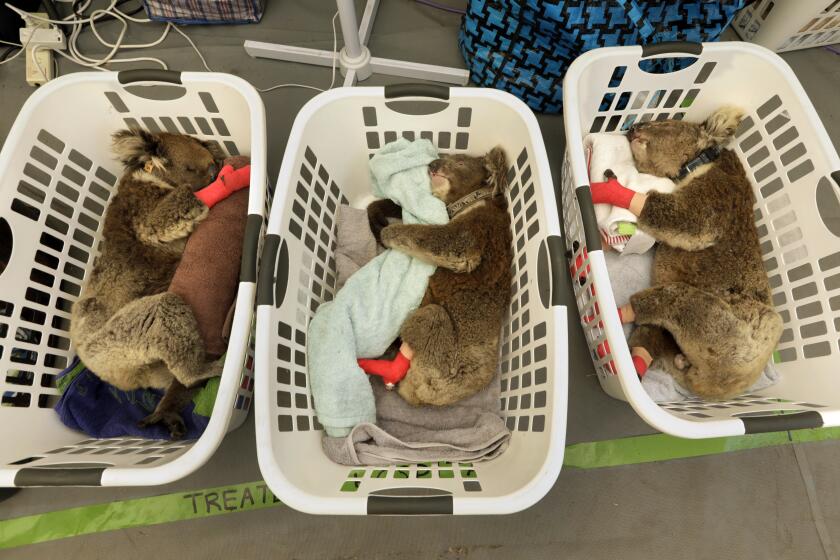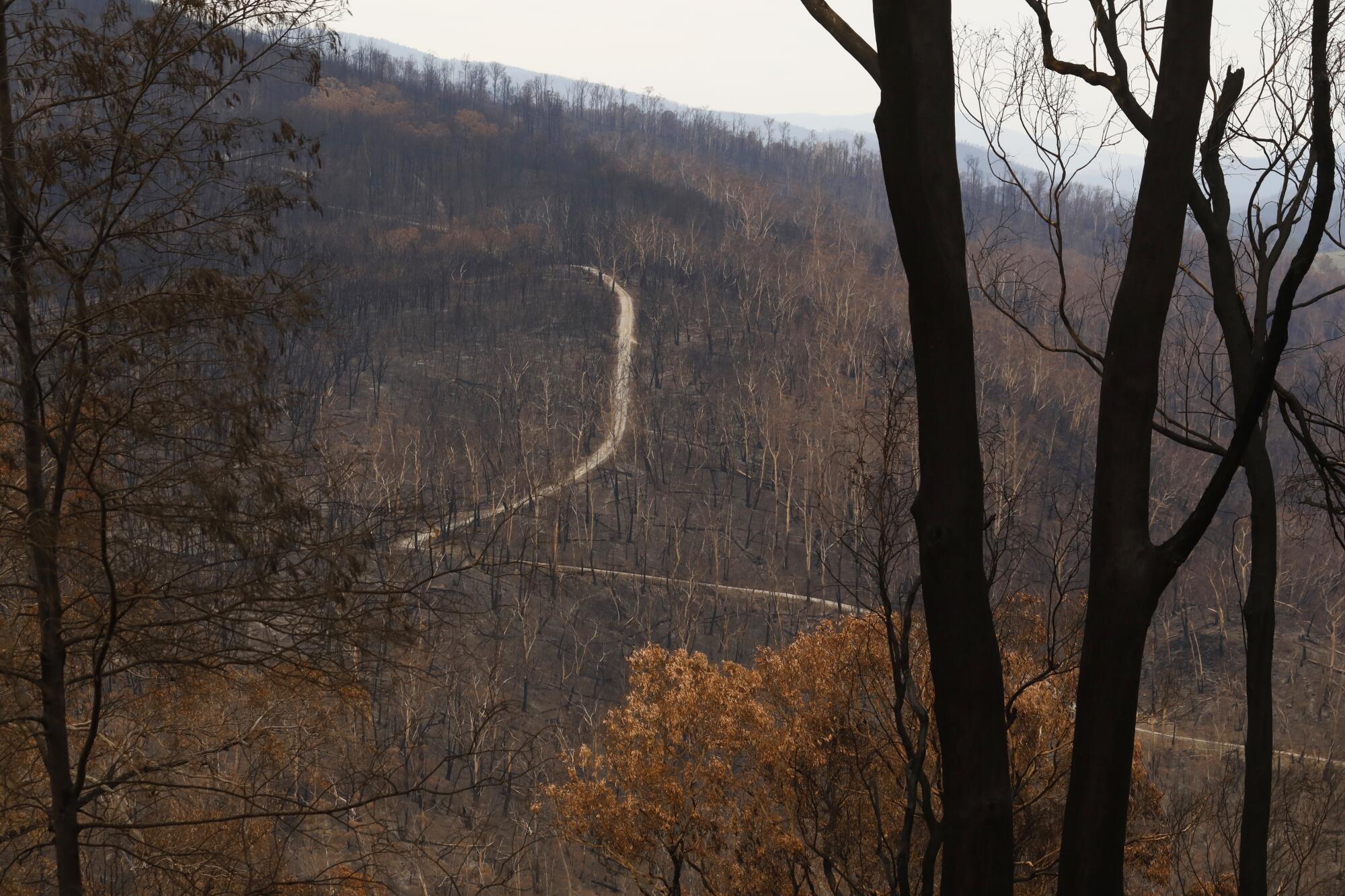
- Share via
BUCHAN, Australia — A two-lane road leads from Australia’s ancient limestone mountain caves in Buchan down to East Gippsland’s 90-mile strip of uninterrupted beach. It is lined with a burnt mosaic.
Along the highway’s upper elevations, which lately are traveled only by locals, police, tree fellers and repair crews, the scenery is made up of acres of 130-foot tall southern mahogany dotting the landscape, their furrowed trunks scorched black and their crowns a blend of leafy neutral grays and browns or, farther on the horizon, nothing at all.
But as the lonely path winds down to Lakes Entrance, a sleepy coastal village roughly 200 miles east of Melbourne, the scars from Australia’s bush fires suddenly disappear.
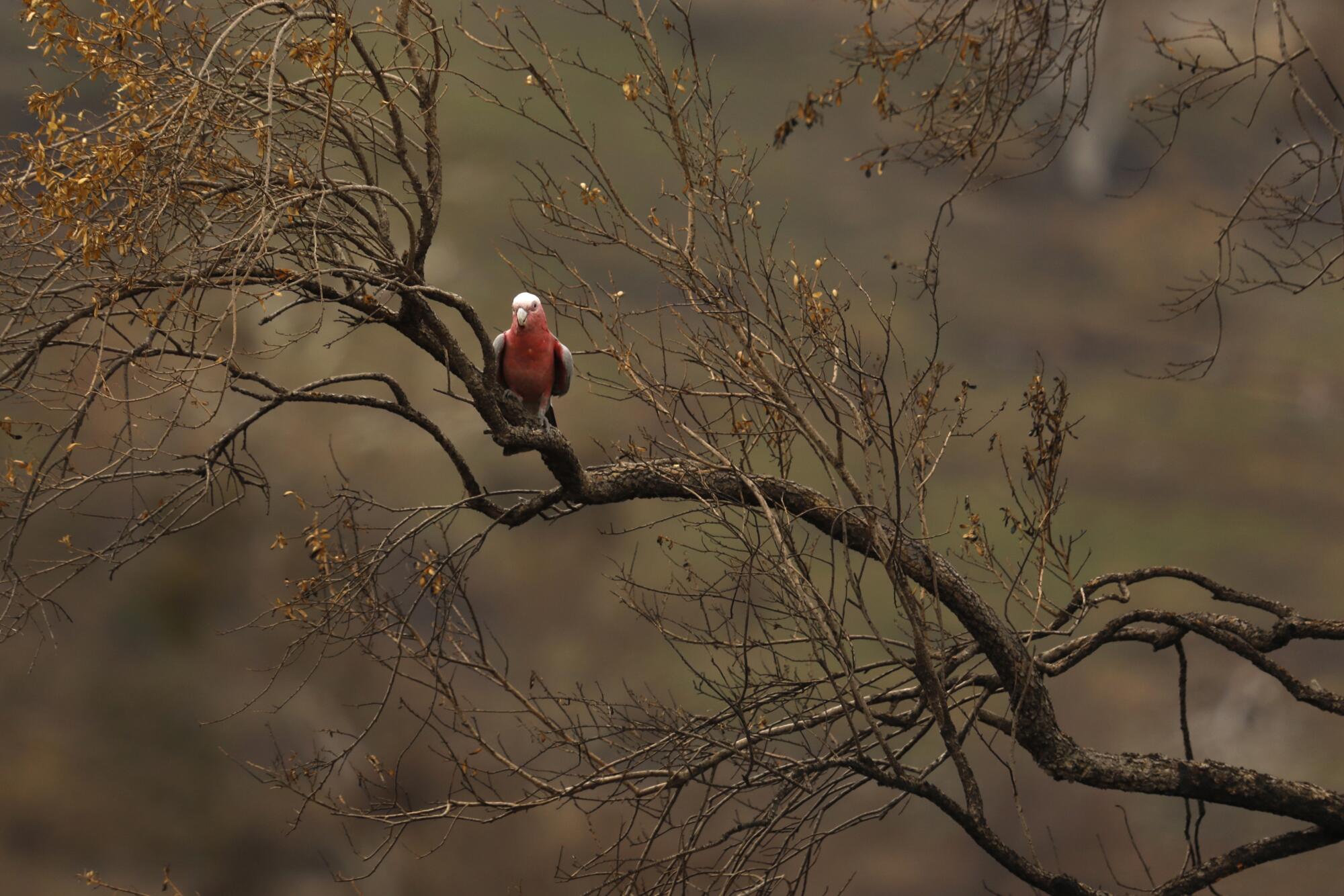
Gone are the scorched kangaroo and wombat road crossing signs. In their place are white box eucalyptus, fire-resistant red honeysuckle and expansive views of the blue waves rolling into Red Bluff Surfing Beach.
There are few remaining clues that Lakes Entrance was included in the story of Australia’s worst fire season ever.
Except, that is, for the lack of tourists.
“[The media] over-dramatized it,” said Charlie Grech, who owns Blue Riviera Boat Hire with his wife, Theresa. “I think they scared a lot of people too much. Like, ‘Don’t go there because you’re gonna get burned,’ sort of thing, which is not the case.”
Australia’s fires have burned through several small towns, but many untouched by the flames are also paying a steep price. Lakes Entrance’s population, for instance, normally swells from 4,800 to 30,000 during its peak tourist season from Christmas to Easter, but is only seeing a few surfers now.
According to government estimates, Australia’s $152-billion tourism industry will take a $4.5-billion hit this year because of the bush fires. The government has announced a $76-million international and domestic media blitz to counter a perception that the continent is unsafe to visit. Visitors from China, India, the United Kingdom and the United States are the country’s most frequent visitors.
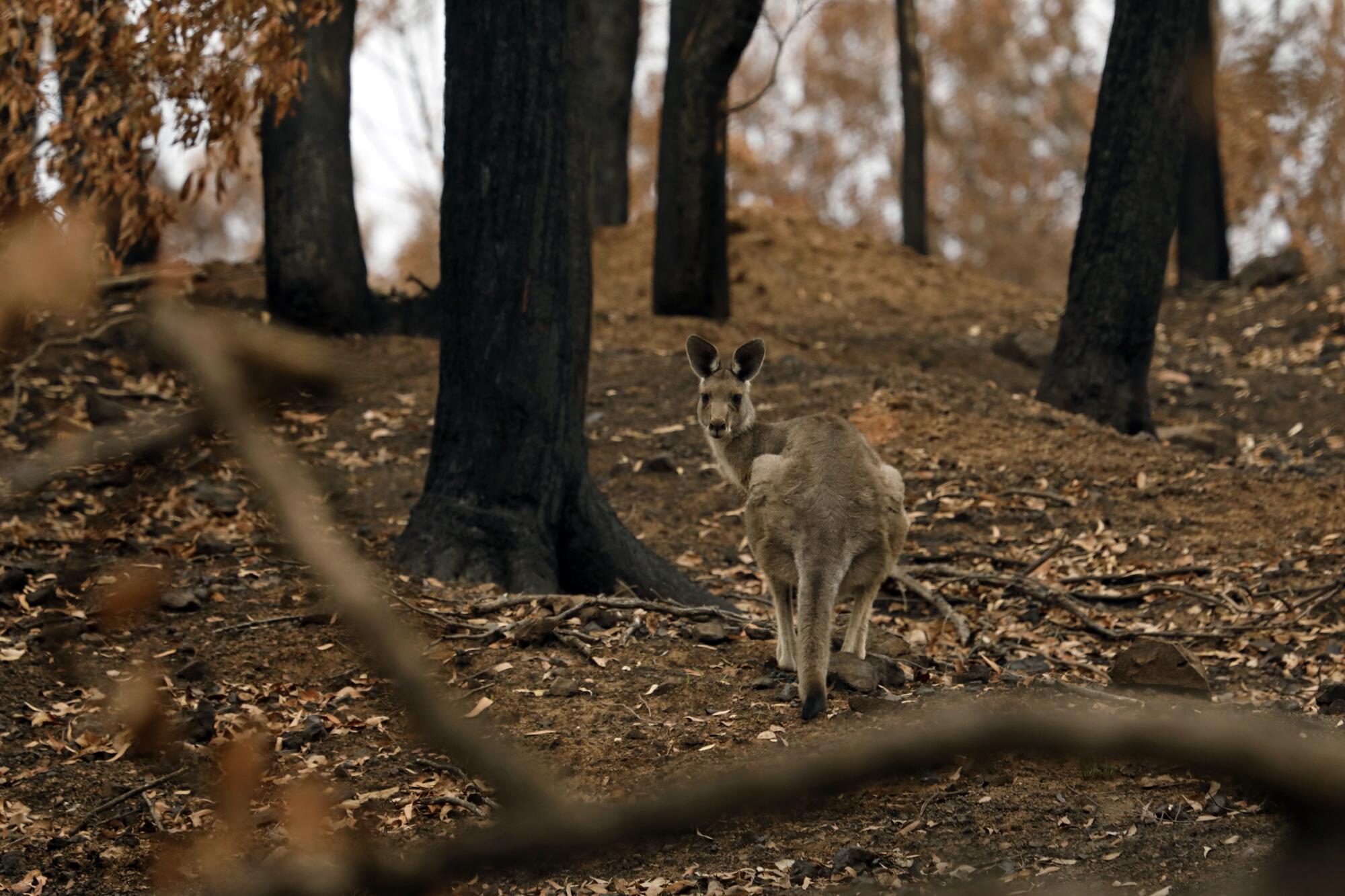
“These bush fires have dealt the biggest reputational blow to our tourism industry that it has ever faced internationally,” said Australia’s Prime Minister Scott Morrison in announcing the tourism boosting program. “My message to anyone thinking about a holiday — from here or overseas — is that Australia’s towns and our incredible parks and beaches are open for business and they need your help.”
Though the flames never got closer than within 12 miles of Lakes Entrance, winds buried the community in thick, choking smoke and showered it with firebrands for days. About 250 miles of arterial roads in the state of Victoria have been damaged or threatened by mudslides, floods and downed trees, including the mountain roads above the waterfront town.
In previous summers, visiting the Greches’ boat rental business without a reservation would have meant a wait, but on one drizzly morning last week, their fleet of small vessels bobbed in the water unoccupied. The couple say their business is down 80%.
“We will manage but it’s going to be very tight, it’s going to be a major struggle,” Theresa said. “There will be a lot of businesses in Lakes that won’t. It depends on how high their overheads are. Whether they’ll cope, I don’t know.”
In the week since the threat to the town subsided, repeated rain showers have cleaned the air and reduced fire activity in the region.
“In the area between Lakes Entrance and Buchan, we’re moving toward the recovery side of things,” said Victoria State Response Controller Andrew Morrow. “There’s some pockets where there’s some risk of fire, but they’re not areas that are necessarily remote or present significant challenges.”
Officials have reduced the fire alert levels across Victoria’s 11 active fires to their lowest category, “Advice,” meaning there is no immediate danger. At the same time, coastal routes are gradually reopening in all but the hardest hit areas like Mallacoota, granting access to miles and miles of storefronts that are open and idle.
Regardless, the cancellations continue to roll in.
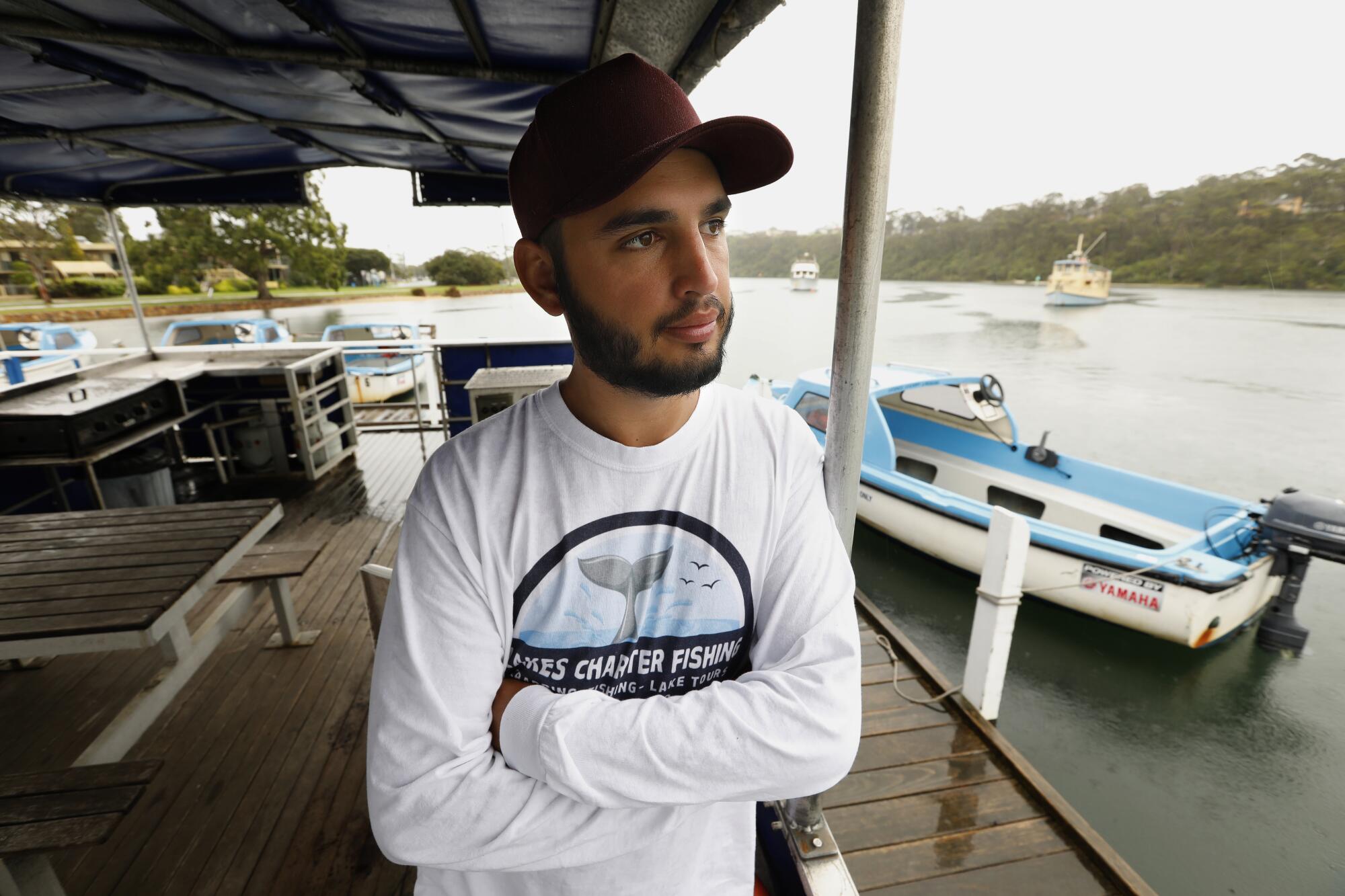
“I’ll probably have to get a full-time job somewhere else just to get us through this year,” said Ricky Grech, 24, who used to work as a shipbuilder but now runs his own charter fishing company off the same dock as his parents Theresa and Charlie.
Grech’s fiancee gave birth to their second son, Caleb, on Jan. 15. They and their 3-year-old son, Oliver, live with Ricky’s parents. The money the young couple had been saving to buy their own home is dwindling as they use it to stay afloat until the tourists return or Ricky lands a second job.
“This was all I’ve been doing for the past three or four years,” he said.
The Grech clan moved to Lakes Entrance from Melbourne about four years ago, to live a lifestyle they’ve only tasted there during annual summer vacations. They imagined easygoing days meeting interesting tourists capped with cool nights and oceanfront sunsets.
But their business and others will have to overcome the images that have come to define Australia — an entire continent engulfed in flames. Social media and newscasts have been saturated with video and photos of Aussies fleeing into the oceans while air tankers coat the landscape in pink retardant.
Australia is a big, dry place, only slightly smaller than the contiguous United States, and about a fifth of it is classified as desert. Of its 2.9 million square miles of land, roughly 51,000, or less than 2%, has burned.

According to government estimates, Australia’s $152-billion tourism industry will take a $4.5-billion hit this year because of the bush fires.
The statistics mean little for those who have lost homes and loved ones, with the death toll rising to at least 32 last week after a U.S. air tanker crashed in New South Wales, killing all three crew members. The fires have burned enormous swaths of wildlife habitat and killed hundreds of millions of animals, with some estimates over 1 billion.
Wildfires in Australia are overrunning vast ecosystems and their wildlife. Nearly half of Kangaroo Island has burned.
After the fires end, much of the least-damaged Australian landscape will recover. But the same can’t be said for Australia’s tourist-reliant businesses.
In Buchan, an hour’s drive into the Snowy River National Park, it isn’t just media saturation that is keeping away visitors. Within the town, the air is clear but the main road remains closed to everyone but residents and repair crews.
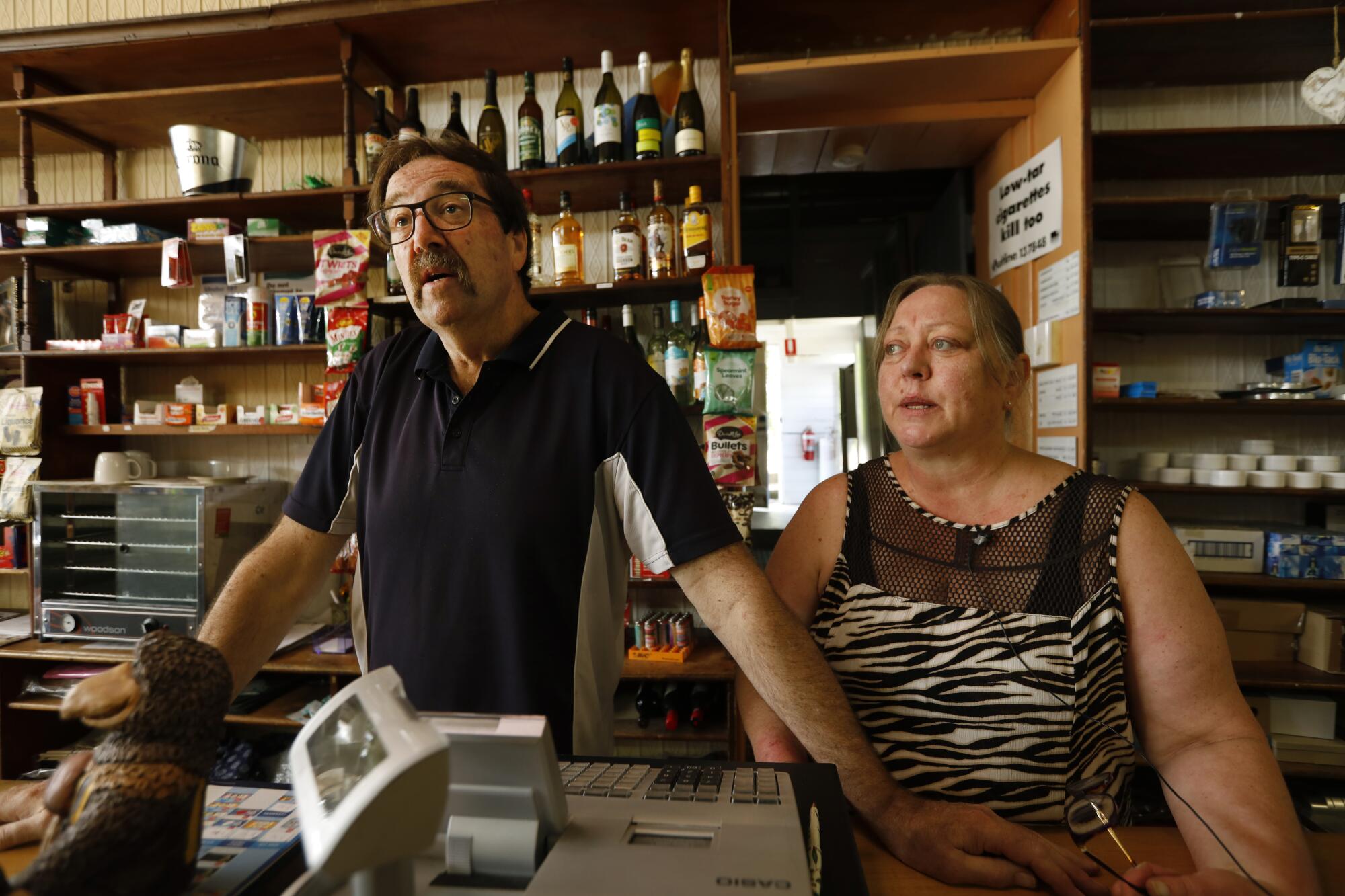
“We all work in unison with each other,” said Sue Harper, who runs the Buchan General Store with her husband, Steve. “The roadhouse will do the fuel and coffee and hot food, and the pub will draw people in for lunch. Then they’ll come down here and buy an ice cream or snacks or lollies for the trip home.”
But these days their only customers are locals picking up their weekly groceries or stopping by the post office. Much of the refrigerated and frozen perishables the couple had purchased for the crush of summer day-trippers and overnight wilderness campers have spoiled, and the store is operating at a loss.
Asked if their business will survive, Steve looked down and shifted his feet, as if he suddenly felt weight on his shoulders.
“A few weeks ago, it was a bit difficult. We weren’t sure what we were going to do,” he said. “But as each week’s gone by, different people have come and give us a bit of help here and there. Some financial.”
The couple say the community help has given them hope. They can hold out until their fellow Aussies take their vacations, many of which were delayed by fire.
In recent weeks, Australia has been debating the government’s role: Should it spend more of the country’s money trying to reshape its image abroad — or direct more funds toward a domestic tourism campaign?
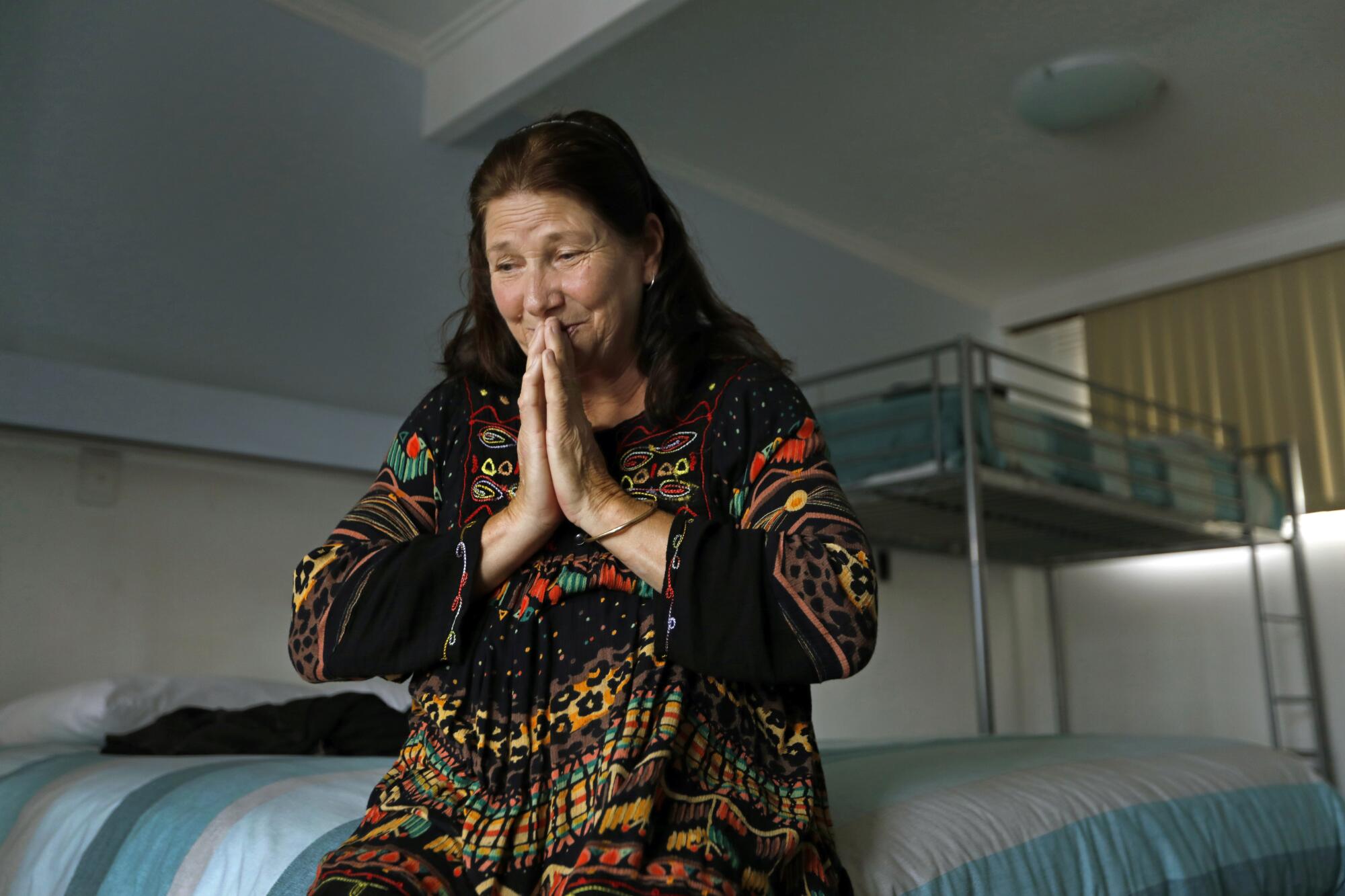
Wendi Perkins, 54, is banking on her countrymen to help see her through. A former scrap metal worker living out her dream of running a seaside motel, Perkins dropped her savings into buying Lake Entrance’s Bamboo Motor Inn last April and began subtly updating it, as she stocked up for the summer busy season.
“I’ll just have to go month to month, ask the family for a little bit of help if I need it,” she said.
Then the bush fires approached in late December, the coastal highway closed, and her plan to pay off her mortgage with the first season’s profits evaporated. Now she’s counting on the local Australia Day weekend to give her business a jump start. She said her rooms, most of which had been vacant for weeks, were booked solid with repair crews and a couple of families.
“I’m not panicking,” Perkins said, wearing a brave face. “I think people will still come back and support us. It’ll be hard, but life can be hard anyway.”
More to Read
Sign up for Essential California
The most important California stories and recommendations in your inbox every morning.
You may occasionally receive promotional content from the Los Angeles Times.
